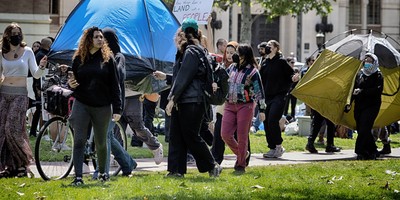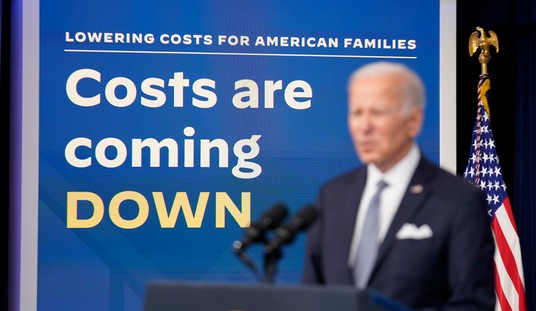"New Ways to Diagnose Autism Earlier" read a recent headline in the Wall Street Journal. There is no question that you can diagnose anything as early as you want. The real question is whether the diagnosis will turn out to be correct.
My own awareness of how easy it is to make false diagnoses of autism grew out of experiences with a group of parents of late-talking children that I formed back in 1993.
A number of those children were diagnosed as autistic. But the passing years have shown most of the diagnoses to have been false, as most of these children have not only begun talking but have developed socially.
Some parents have even said, "Now I wish he would shut up."
I did absolutely nothing to produce these results. As a layman, I refused to diagnose these children, much less suggest any treatment, even though many parents wanted such advice.
As word of my group spread, various parents would write to ask if they could bring their child to me to seek my impression or advice. I declined every time.
Yet, if I had concocted some half-baked method of diagnosing and treating these children, I could now claim a high rate of success in "curing" autism, based on case studies. Perhaps my success rate would be as high as that claimed by various programs being touted in the media.
If a child is not autistic to begin with, almost anything will "cure" him with the passage of time.
My work brought me into contact with Professor Stephen Camarata of Vanderbilt University, who has specialized in the study of late-talking children-- and who is qualified to diagnose autism.
Professor Camarata has organized his own group of parents of late-talking children, which has grown to hundreds, as compared to the several dozen children in my group. Yet the kinds of children and the kinds of families are remarkably similar in the two groups, in ways spelled out in my book "The Einstein Syndrome."
Recommended
The difference is that Professor Camarata is not a layman but a dedicated professional, with decades of experience-- and he too has expressed dismay at the number of false diagnoses of autism that he has encountered.
What Camarata has also encountered is something that I encountered in my smaller group-- parents who have been told to allow their child to be diagnosed as autistic, in order to become eligible for government money that is available, and can be used for speech therapy or whatever other treatment the child might need.
How much this may have contributed to the soaring statistics on the number of children diagnosed as autistic is something that nobody knows-- and apparently not many people are talking about it.
Another factor in the great increase in the number of children diagnosed as autistic is a growing practice of referring to children as being on "the autistic spectrum."
In other words, a child may not actually be autistic but has a number of characteristics common among autistic children. The problem with this approach is that lots of children who are not autistic have characteristics that are common among autistic children.
For example, a study of high-IQ children by Professor Ellen Winner of Boston College found these children to have "obsessive interests" and "often play alone and enjoy solitude," as well as being children who "seem to march to their own drummer" and have "prodigious memories." Many of the children in my group and in Professor Camarata's group have these characteristics.
Those who diagnose children by running down a checklist of "symptoms" can find many apparently "autistic" children or children on "the autism spectrum."
Parents need to be spared the emotional trauma of false diagnoses and children need to be spared stressful treatments that follow false diagnoses. Yet the "autism spectrum" concept provides lots of wiggle room for those who are making false diagnoses.
Real autism may not get as much money as it needs if much of that money is dissipated on children who are not in fact autistic. But money is money to those who are running research projects-- and a gullible media helps them get that money.
























Join the conversation as a VIP Member